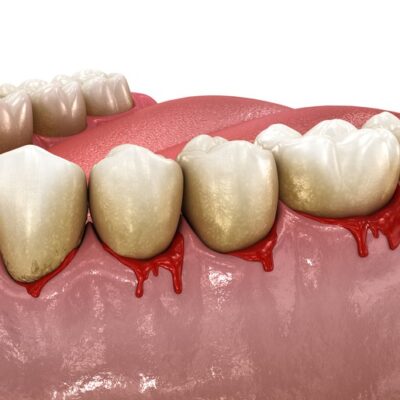Having a tooth extracted isn’t exactly anyone’s favorite thing to do, but sometimes it’s necessary for your dental health. Healing well after a tooth extraction is crucial to getting back to your normal routine as quickly as possible. Here, we’ve gathered some practical tips and insights to help you navigate the healing process with ease and prevent any complications that could slow you down.
What to Expect Immediately After Extraction
Once your dentist completes the tooth extraction, they’ll provide you with some gauze to gently bite down on. This helps manage bleeding and allows a clot to form in the empty socket. The first 24 to 48 hours are crucial for clot stabilization, so handle this period with care.
The Importance of Rest
Take it easy for the rest of the day. Avoid physical activity and keep your head elevated. This simple change in your routine will help reduce bleeding and allow your body to focus on healing.
Pain Management
It’s normal to experience some pain and discomfort post-extraction. Your dentist might suggest over-the-counter medications or prescribe something more substantial if needed. Stick to their guidance and do not exceed the recommended dosage.
Ensuring Proper Oral Hygiene
While your mouth is healing, maintaining proper oral hygiene is vital. However, it’s important to know how to clean your mouth in such a way that doesn’t disturb the healing socket.
-
Rinse your mouth gently with a saltwater solution 24 hours after the surgery.
-
Avoid brushing directly over the extraction site for the first few days.
-
Keep the rest of your mouth clean by brushing gently and using mouthwash.
Foods You Can Enjoy
The foods you eat post-extraction significantly affect how well you recover. Soft foods that require minimal chewing are your best friends for the first few days.
-
Mashed potatoes
-
Yogurt
-
Soup (ensure it’s lukewarm)
-
Applesauce
Things to Avoid After Extraction
Some activities and habits could disrupt your healing process, so it’s best to avoid them until given the all-clear by your dentist.
Steer Clear of Certain Foods
-
Hard or chewy foods
-
Extreme temperature foods
-
Highly spiced dishes
Refrain From Using Straws
This might sound odd, but using a straw can dislodge the blood clot and lead to dry socket, a painful condition you’ll want to avoid.
Avoid Smoking and Alcohol
Smoking can significantly impede healing and is one of the leading causes of dry sockets. Likewise, alcohol can interact negatively with medications and slow down recovery.
When to Contact Your Dentist
It’s crucial to understand the difference between typical post-extraction symptoms and warning signs that require professional attention.
-
Excessive bleeding that does not subside after applying pressure
-
Severe or worsening pain after a few days
-
Foul taste or odor from the site, which could signal infection
-
Fever or general malaise
Follow-up Appointments
Make sure you attend any scheduled check-ups. These visits enable your dentist to monitor healing and address any concerns you might have.
Long-term Recovery Tips
Even after the initial healing, some practices can continue to support your oral health in the long run.
Maintaining a Healthy Diet
Think of your post-extraction diet as an opportunity to nourish your body as it heals. Healthy foods with lots of vitamins and minerals can strengthen your overall health.
Regular Dental Check-ups
Even if everything feels fine, regular dental visits can preemptively catch issues before they become significant problems.
Considerations for Special Cases
If you’ve had more complex extractions, like wisdom teeth removal or multiple teeth removed simultaneously, recovery might need more tailored interventions.
Wisdom Teeth Extractions
Due to their position in the mouth, wisdom teeth extractions can sometimes require additional care. Pay close attention to your dentist’s specific diet and physical activity instructions.
Multiple Extractions
If you’re recovering from multiple extractions, nutrition becomes even more paramount. Protein shakes and well-balanced smoothies can be a fantastic way to get the nutrients you need without much chewing.
Specialized Dental Services
Having a personalized dental care plan can contribute significantly to a smoother recovery. Consulting with specialized dental services ensures that individual care requirements are effectively met. Integrating specific treatments, such as periodontal treatment, into your plan can significantly aid in the healing process, particularly if you are dealing with gum-related issues.
When Advanced Dental Promotions Help
When complications arise, it’s essential to have a go-to resource for comprehensive dental care. Having a trusted dental professional ensures you’re always in good hands, whether you’re dealing with routine check-ups or more specific needs like tooth extractions Albuquerque.
A Natural Approach
Many folks are now opting for holistic methods to complement their dental care. From herbal rinses to alternative pain management, these natural remedies can enhance traditional medical advice.
Planning for Quick and Full Recovery
Preparation is key. Starting with a well-stocked home with all essentials can ensure your healing process is smooth, as you will need critical items.
Essentials to Have on Hand
-
Prescribed medications
-
Salt for rinses
-
Soft foods and drinks
-
Extra pillows for head elevation
For those looking to read more about the services to enhance their recovery plans further, tapping into educational resources can be immensely beneficial. They’re a fantastic way to ensure that all your bases are covered and you recover smoothly.
Mindset Matters
Finally, a positive attitude can truly make a difference. Visualizing a straightforward recovery could set the tone for how you approach each day after your extraction, fostering a proactive rather than reactive mindset.
Final Thoughts
Recovering from a tooth extraction can seem daunting, but with the proper care and patience, it doesn’t have to be a hassle. Follow your dentist’s post-operative instructions carefully, and allow yourself the necessary time to heal. Remember, your dentist is there to support you every step of the way, providing guidance and reassurance. Never hesitate to reach out with any questions or concerns that may arise during your recovery process.




